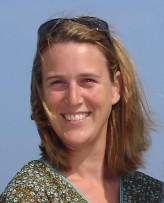Evaluating Online Sources
Read this comment by a teacher to a blog post by Lawrence Lessig (mind you, blog, not website) responding to Andrew Keen's book "The Cult of the Amateur", which criticizes user-produced content on Web 2.0, at the cost of what he calls 'expert knowledge'. Lawerence Lessig is a law professor at Stanford University and the founder of Creative Commons.
"I find the most interesting aspect of these phenomena (be it Wikipedia or blogging or YouTube or Amazon recommendations) is the way that they force [u]s to recognize that the established mechanisms and institutions of information and culture (be it Encyclopedia Brittannica or The Wall Street Journal or NBC or Consumer Reports) are themselves socially produced, historically contingent, institutionally bound, and systematically imperfect systems. They too have an implicit, built-in philosophy of where knowledge and culture come from and how one knows to trust or appreciate it, they too are structurally better at getting at some things and worse at others, they too can be mishandled or exploited. This is not to say that we should adopt a relativist position, that any way of producing information is okey-dokey. We can have a discussion about specific kinds of resources are best served by particular arrangements, some of which may benefit from wider, amateur participation, others benefiting from more bound, trained communities. But it obligates us to give up this kind of comfortable certainty we enjoy about those traditional forms, the social authority they have built up over time that cloaks their imperfections. And just as much as the Internet and its applications may be highlighting this, the traditional institutions of knowledge are doing a fine job revealing their own weaknesses all by themselves, from the failure of the political press to challenge the run up to war in Iraq, to the diminishing cultural relevance of major label music, to the crushing consolidation of corporate radio , etc etc."
All this to say, that what we consider when evaluating online sources of information is just as valid when we are evaluating print or 'traditional' sources of information.
Purpose: To reflect on and discuss what criteria you do use and can be used to evaluate the reliability and authority of information you find on the Internet (or anywhere!).
Task:
1 – Many of you will be writing your theses soon and there’s no doubt that you will be using the Internet as part of your research. Whenever you do research, be it in the library or online, you have to judge the information you come across. I’d like you to think about what criteria you use to make these judegments. Make some notes about this either on paper or in your blog. If you do this in class, make a list in groups of 3-4.
Tips from Purdue’s Online Writing Lab (OWL)
Tips from
3 – Make a checklist that you can always keep handy when searching for information.
4 - Based on your checklist, let's go explore some MORE tools you can use to 'filter' information on the Internet. Search for the phrase "personal learning environment" in the following websites. Find sources that you think are valuable and save them on delicious (in class, again, do this in groups).
- Google Blogs - Similar to Technorati, Google will search for your tags in blogs on the Internet
- Google Books - Various publishers have published parts of books on the Web. Although you cannot download or copy the information, if a book is not in the library and you're thinking of buying it, or if you want to check it out before you go to the library, you can use this tool to read bits and pieces of a book.
- Google Scholar - Going one step further, with this tool, Google will search for your tags in online academic texts, be they .pdf files, .docs, abstracts or citations. You may find paid-access only sites, but you may also be surprised by how many free online texts are available on the Web.
DOAJ - Directory of Open Access Journals
And the good old library catalogue
And if that wasn't enough ;-) What about wikis? In his book, "The Cult of the Amateur" Andrew Keen' states "Since Wikipedia's birth, more than fifteen thousand contributors have created nearly three million entries in over a hundred different languages—none of them edited or vetted for accuracy (p4)." Well, not all wikis are Wikipedia. See what you think of these:
The LTC wiki at the University of Manitoba
5 - Write a reflective blogging post on what, if anything ;-) , you have learned in this task.
Respond: Read the other the posts of the members of your group. Write a comment agreeing/disagreeing/reflecting on what your peers have said.
Timeline: Sunday, April 5 (task), Wednesday, April 8 (respond).

1 comment:
Hi Sarah!
Just to let you know that I'm starting doing research for my final dissertation. And guess what? I'm using google books as a search engine and have to say it's really handy! So, thanks for letting us know about this tool (and much more)!
Post a Comment